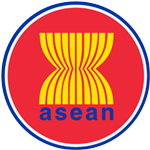ASEAN cooperation in the agriculture sector dated back as early as 1968, with cooperation in food production and supply. In 1977, the scope of cooperation was broadened to include the greater area of agriculture and forestry as the needs have increased. Currently, the specific areas under the ASEAN cooperation in food, agriculture and forestry includes food security, food handling, crops, livestock, fisheries, agricultural training and extension, agricultural cooperatives, forestry and joint cooperation in agriculture and forest products promotion scheme.
Objective
The basic objective of the ASEAN cooperation in food, agriculture and forestry is to formulate and implement regional cooperation activities to enhance the international competitiveness of ASEAN’s food, agriculture and forestry products as well as further strengthen the food security arrangement in the region and joint positions in international fora.
Mandate and Policy Guidance
In line with the guidance of the Fourth ASEAN Summit in 1992 to strengthen regional cooperation in the areas of development, production, and promotion of agricultural products, the ASEAN Ministers on Agriculture and Forestry (AMAF) identified seven priority areas as reflected in the Ministerial Understanding (MU) on ASEAN Cooperation in Food, Agriculture and Forestry signed in October 1993 in Bandar Seri Begawan. The MU acts as the umbrella of the ASEAN cooperation in food, agriculture and forestry.
- Strengthening food security in the region;
- Facilitation and promotion of intra- and extra-ASEAN trade in agriculture and forestry products;
- Generation and transfer of technology to increase productivity and develop agribusiness and silvo-business;
- Agricultural rural community and human resource development;
- Private sector involvement and investment;
- Management and conservation of natural resources for sustainable development; and
- Strengthening ASEAN cooperation and joint approaches in addressing international and regional issues.
For the forestry sector, ASEAN, specifically developed five strategic thrusts, namely:
- Sustainable forest management
- Strengthening ASEAN cooperation and joint approaches in addressing international and regional forestry issues
- Promotion of intra- and extra-ASEAN trade in forest products and private sector participation
- Increasing productivity and efficient utilisation of forest products
- Capacity building and human resources development.
In response to the sharp increase in international food prices in 2007/2008, the Leaders pledged to embrace food security as a matter of permanent and high priority policy and adopted a Statement on Food Security in the ASEAN Region, which commits, among others, to the implementation of the ASEAN Integrated Food Security (AIFS) Framework and the Strategic Plan of Action on Food Security in the ASEAN Region (SPA-FS) (2009-2013).
Implementation Mechanism
The SOM-AMAF is the main ASEAN body that oversees the overall ASEAN cooperation in food and agriculture, with the guidance of the ASEAN Ministers on Agriculture and Forestry (AMAF). Sectoral working groups/ joint committee/ board, and experts groups have been established to implement the respective cooperation sectors of food, and the various sub-sectors of agriculture and forestry, as well as in the trade promotion of agriculture and forest products. In this mechanism, the ASEAN Secretariat acts as the overall coordinator and provides necessary assistance in all aspects to ensure successful undertaking of the cooperation programmes and projects in collaboration with sectoral working groups, national focal points and relevant institutions.
Areas of Cooperation
ASEAN has implemented numerous cooperation projects in food, agriculture and forestry sectors, which cover a wide spectrum of activities ranging from exchange of information, crop production, postharvest and handling, training and extension, research and development as well as trade promotion in the areas of crops, livestock, fisheries, and forestry.
In order to respond to trade globalisation, ASEAN cooperation in food, agriculture and forestry is now more focused on the enhancement of food, agricultural and forestry products competitiveness in international markets, while sustaining agricultural production. Harmonisation of quality and standards, assurance of food safety, and standardisation of trade certification are amongst the priorities being addressed, building upon the experience of some Member States and existing international standards.
Most of the ASEAN programmes and projects are implemented under a networking arrangement, where cooperation is implemented through the focal point in each ASEAN Member States and utilises national funds.


